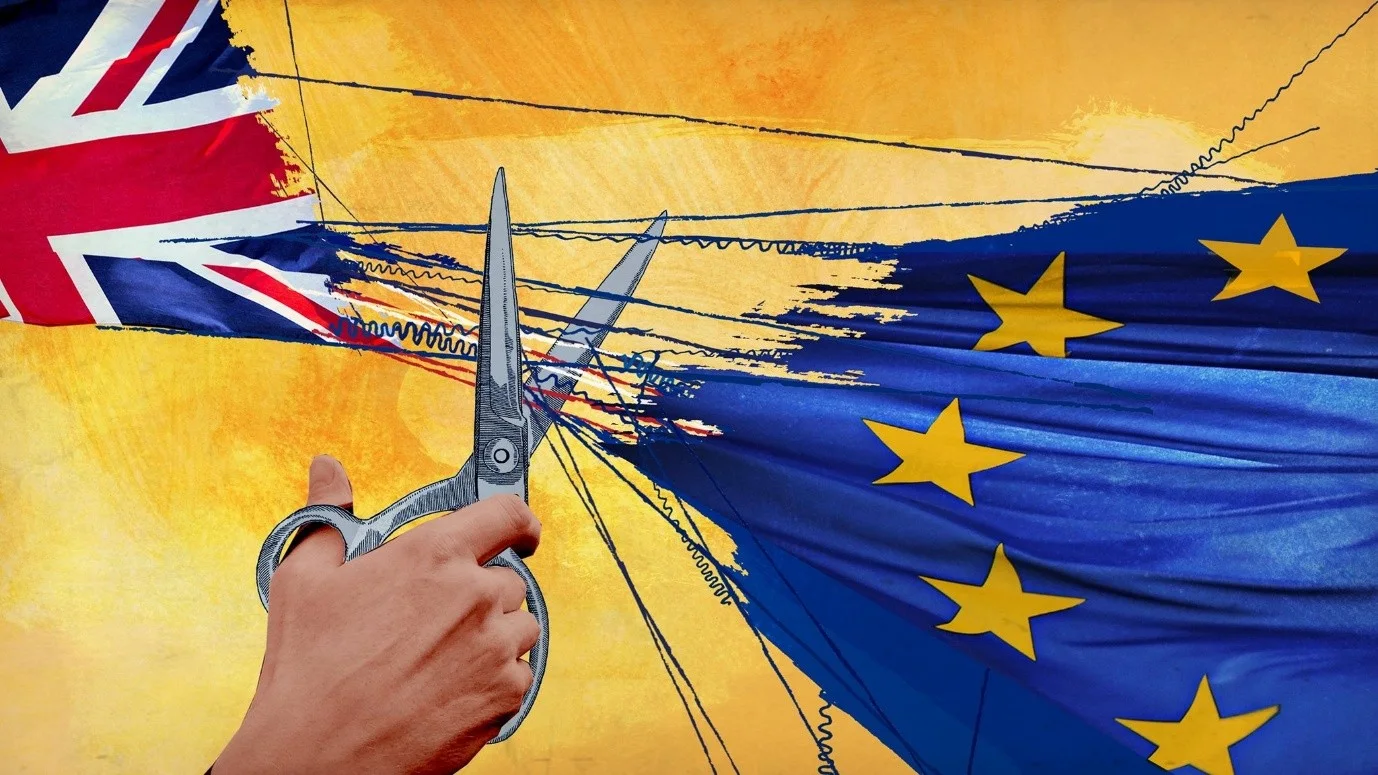Brexit’s Old Guard Adrift

Since the United Kingdom’s momentous decision to depart the European Union, the so-called “ancient mariners” of Brexit, its oldest and most ardent political advocates, have adhered to their vision of sovereignty and national rejuvenation with near-mythical certainty. Mirroring Samuel Taylor Coleridge’s tormented mariner, these individuals traverse the political arena recounting tales of treachery by Brussels, triumphs in the realm of free trade, and a nostalgic past that seems to exist just in their recollections. Brexit’s Old Guard Adrift However, over a decade after the 2016 vote, it has become more evident that these seafarers are not only adrift but are also completely lost their direction.
Central to Brexit was a commitment to regain sovereignty over borders, legislation, and commerce. Under the influence of its senior figures, such as Nigel Farage, Jacob Rees-Mogg, and to a degree, Boris Johnson, this pledge adopted the rhetoric of imperialism, maritime dominance, and a desire for a Britain free from European constraints. It was a romanticized nationalism that derived its vigour from nostalgia rather than practicality. However, time and reality have been unkind to these visionaries. The future they anticipated has not come to fruition; the vessel they set in motion is sinking.
The economic repercussions of Brexit have started to adhere to the UK’s financial stability like barnacles on a ship’s hull. Trade tensions with the EU, the nation’s principal trade partner, have resulted in stagnant exports and heightened regulatory burdens for firms, especially small and medium-sized organizations that lack the means to manage the new regulations. Investment has decelerated, and some multinational corporations have relocated operations to other regions in Europe to preserve access to the single market. The UK’s post-Brexit trade agreements have mostly fallen short of compensating for the losses sustained by its separation from Europe, contrary to the anticipated global commercial revival.
The old mariners of Brexit, meanwhile, remain resolute. They attribute the issues not to the choice to exit the EU, but to the way of its execution. They vehemently criticize what they refer to as a “Brexit betrayal”, a sentiment that neatly exonerates them from accountability while attributing fault to technocrats, public officials, and political adversaries whom they claim compromised the integrity of the initial idea. They assert that the authentic Brexit was never implemented. This rhetorical manoeuvre may appease a limited constituency, although it fails to persuade a wider audience more fatigued with platitudes devoid of answers.
The UK has seen a decline in its soft power, both culturally and diplomatically. The assertion that Brexit will propel “Global Britain” onto the international scene has been shown as vacuous. The UK often remains alone in critical discussions about climate, security, and trade, rather than evolving into a flexible, autonomous power broker. Even Commonwealth states, formerly envisioned as prospective trading allies in a new Anglo spheric framework, have shown more pragmatism than sentimentality. Australia and New Zealand negotiated rigorously in free trade deals, but India, often seen as a prized possibility for Brexit proponents, has shown caution in advancing a deal with a post-EU Britain.
In Northern Ireland and Scotland, the centrifugal forces generated by Brexit persist in exerting pressure on the Union. The Northern Ireland Protocol, designed to prevent a hard border on the island of Ireland, has resulted in a de facto hybrid status for the territory that satisfies neither party. Loyalist discontent in Northern Ireland and revived demands for Scottish independence indicate that Brexit has not fortified the Union but jeopardized it. The ancient mariners, in their zeal to liberate Britain from the EU’s influence, underestimated, or disregarded, the constitutional intricacies of the state they claimed to protect.
Ironically, the rhetorical phrase “taking back control” now most accurately pertains to a younger generation that mostly supported remaining in the EU and is becoming doubtful of the Brexit narrative. Surveys indicate an increasing majority of Britons now see Brexit as an error. This generational transition is perhaps the most evident indication that the mariners’ narrative is no longer powerful. Although they continue to get coverage in supportive media and deliver impassioned speeches in the Commons, they increasingly seem like relics rather than revolutionaries.
The current danger is that the UK, instead of deriving lessons from the event, gets ensnared in a loop of denial and deflection. Rather than undertaking a candid re-evaluation of its global position, it risks intensifying its insularity, propelled by the echo chambers established by ancient seafarers. To disrupt this pattern, the nation needs new leaders, individuals who understand that sovereignty is not an ultimate goal but a means for involvement, collaboration, and advancement. The idealism that fuelled Brexit must yield to pragmatism if Britain is to establish a new, viable direction.
In Coleridge’s poem, the mariner is irrevocably condemned to roam the globe, obligated to recount his story as a cautionary tale for others. Perhaps such is the destiny of Brexit’s original proponents: not as visionary leaders, but as cautionary exemplars, spectres of a dream that conflated myth with policy and nostalgia with strategy.











